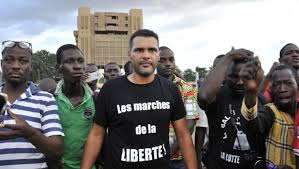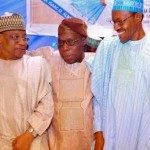 In 2017, what can be said about the democratic situation in African States? Whereas some countries are strengthened year after year, the democratic benefits often obtained come with difficulty and lots of sacrifices. Others don’t succeed in breaking free from the long-lasting and important lingering odour of authoritarianism. Whereas we witness pacific transfers of power and democratic alternations in some countries, we still deal with political leaders who use clever processes to unduly prolong their position as heads of the state. This is the demonstration that the obsession of power remains a perennial issue in the head of lots of political authorities in Africa. It shall be first specified that the democratic health condition of African countries cannot be determined only with regard to free and transparent elections in those countries. This would be a really minimalist and subjective conception of democracy.
In 2017, what can be said about the democratic situation in African States? Whereas some countries are strengthened year after year, the democratic benefits often obtained come with difficulty and lots of sacrifices. Others don’t succeed in breaking free from the long-lasting and important lingering odour of authoritarianism. Whereas we witness pacific transfers of power and democratic alternations in some countries, we still deal with political leaders who use clever processes to unduly prolong their position as heads of the state. This is the demonstration that the obsession of power remains a perennial issue in the head of lots of political authorities in Africa. It shall be first specified that the democratic health condition of African countries cannot be determined only with regard to free and transparent elections in those countries. This would be a really minimalist and subjective conception of democracy.
The Good Performers of Democracy in Africa
Ghana and Benin experienced last year, pacific elections and a democratic alternation at the head of the state. In these two countries, the political pluralism is seen as strength and is not stifled. Trade unions are well organized and constitute pressure means against the government. Benin is also the first country which organized the first national conference on the continent in 1990. Benin is moreover the pioneer in the establishment of an independent electoral commission. Benin is worthy of note due the fact that this country didn’t stay paralyzed in a kind of excitement following this historical role of democratic precursor, but as the analyst Constantin Somé rightly underlines in his master’s thesis: « Benin distinguishes itself by its innovation ability in all fairness and transparency, which shows progress. Refusing the usurpation of political power by any group or faction that wouldn’t originate from the electoral body choice. This is why an independent and autonomous « a mediator » charged with elections has been established. Benin cultivates pacifism by an increasingly healthy management of electoral competitions and a progressive institutionalization of organs charged with regulating elections and above all their independence towards the government, the parliament and public authorities ». [1]
Ghana takes second place in Africa behind Namibia and the 26th at the global level of 2016 Reporters without Borders (RSB) ranking about press freedom. [2] This prominent place in this international ranking conveys the steady challenge of guaranteeing press independence and freedom of speech and opinion prerogatives. On the political level, the popular vote is respected and the losers accept their defeat. During the presidential election of 2012, Dramani Mahama was declared the winner by the Constitutional Court against Akuffo Addo after recourse of the latter before the said court. Following this sentence, he admitted his defeat and called Mahama to congratulate him. In 2016, the outgoing president Mahama was defeated by Akuffo-Addo during the elections and admitted instantly his defeat. This gives every reason to believe that the Ghanaian democracy is constantly growing.
Still in West Africa, Senegal is also an avant-garde in terms of democracy in our continent. Even if this country has known intermittent episodes of « crisis », it always knew how to recover. The longstanding and strong tradition of activism in the political, community and trade union spheres (Ex : Collectif Y’EN A MARRE, Raddho, Forum Civil as well as other organizations of the civil society and lively and committed political parties) forms a significant safeguard against authoritarian and anti-democratic vague desires. President Wade’s defeat against his opponent Macky Sall in 2012, the constitutional referendum organized in 2016, illustrate the healthy democratic condition of this country and the desire of citizens and political leaders to preserve the Senegalese democratic ethos. The insular States that are Cape Verde and Mauritius deserve as well to be mentioned as model democracies in the continent. These countries experience a political stability which is in particular the result of an institutionalization and of the respect of democratic rules and practices that govern the public action as well as the private sphere.
In respect to South Africa, it is a democracy which works well generally. Unlike a lot of countries in our tropics, we can add to the credit of this nation that the judicial power is still independent from the executive one. As proof of this, we can quote the legal problems of president Zuma entangled in corruption and abuse of power scandals. We all recall the reports of the Republic ex mediator Thuli Madonsela who revealed in all independence –even if she suffered political pressures- the « Nkandlagate » which refers to the renovation of a private residence with public funds and also the case concerning the narrow collusion between Zuma and the wealthy Gupta family. Even if the targeted murders are plentiful in this country, we can still notice that on the institutional field, freedom of speech is guaranteed and respected, as shown by EEF (Economic freedom fighters),deputies’ severe grumblings of Julius Malema during parliamentary sessions in the presence of president Zuma.
Sao Tomé and Principe is a democratic role model in Africa. Even if this little country, not much strategic in a geographical and economical perspective arouses little interest for the international observers and analysts, the essentials of democracy are established there and have value. The same analysis can be made for Tanzania.
According to a 2014 Reporters Without Borders (RSB) rank about press freedom, Namibia is the only country in Africa to get a score more or less similar to Scandinavian countries’, performing better (19th at global level) than France (37th) and many more countries of the Old Continent. Namibia is also the first African country to organize presidential and legislative elections by electronic vote in November 2014.Botswana is also quite reputable for its democracy. This country organizes regularly free and transparent elections, has good results in respect of good governance and fight against corruption even if we cannot ignore the coercive and repressive measures taken against the San minority, also called Bushmen. In North Africa, Tunisia tries to stand out from his neighbours. Tunisia adopted a progressive constitution and organized in 2014, free and transparent elections. Trade union or civil society activism such as the UGTT (Tunisian general union of work) and the Human rights league in Tunisia (LTDH) has without a doubt been an essential contribution in this democratic burst.
The political systems resistant to the long-term establishment of democratic principles
Alongside these countries that show notable democratic profiles, there are countries that counteract the good effects and are still hostages to authoritarian systems or insufficiently democratic. In Africa, many regimes establish “cosmetic” or facade democracies. Many regimes claim that they become infatuated with democracy fundamentals such as multi-party system, free and transparent elections, Rule of law and basic law, even though the running of their countries reflects clearly an arbitrary power, autocratic or/and corrupt…the choice is yours. The Great Lakes region of Africa (Uganda, DRC, Rwanda and Burundi) and countries such as Eritrea, Gambia, Zimbabwe, Sudan, Djibouti, Ethiopia, Egypt, to name but a few, are among many that are far from having achieved the advisable or desired standards of a democracy. It is clear that the democratic situation of these countries is not utterly uniform. Some of these countries are led by tyrannical and last-ditch regimes, frontally resistant to populations’ democratic ambitions. Whereas in other countries, despite serious democratic gaps, some basic democratic principles are relatively, sometimes according to the desires of the regime, well promoted and applied.
African populations and especially the youth are very thirsty for democracy to freely express their potentials. They don’t want be stifled anymore by authoritarian obsolete drifts. Lately, we saw how Yahya Jammeh’s regime in Gambia attempted to carry out an illegitimate takeover in order to stay in power despite his defeat. This megalomania got fortunately what it deserved: a failure. The African Union as well as the sub regional organizations must assume an active role to stop the authoritarian momentums. It will be good when African democracy rises from the ashes and moves forward to progress!
[1] Somé, Constantin (2009, pp.31-32): “Pluralisme socio-ethnique et démocratie : cas du Bénin », a dissertation made to achieve a Master in political science at Quebec University in Montreal.
[2] RSF rank: https://rsf.org/fr/classement
Translated by
Corinne Espartero

